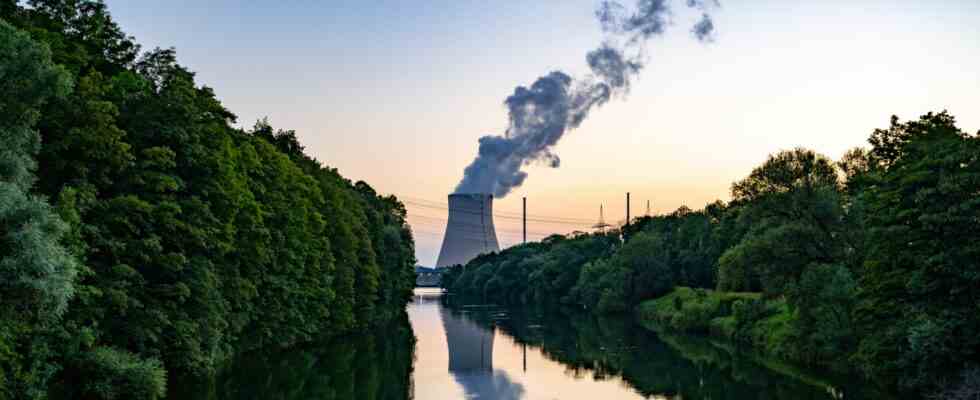Status: 06.08.2022 3:47 p.m
Should a Bavarian nuclear power plant continue to run? Technically possible, says TÜV Süd. However, the Federal Environment Ministry sees serious shortcomings in the assessment. Bavaria’s Ministry of the Environment rejects this.
The dispute between the federal government and Bavaria about the possible continued operation of a nuclear power plant and the potential restarting of another in Bavaria is entering the next round: Bavaria’s Ministry of the Environment rejected the Federal Ministry of the Environment’s previous criticism of a TÜV assessment of two Bavarian nuclear power plants.
“TÜV Süd is one of the most renowned experts”
A spokesman for the ministry said: “TÜV Süd is one of the most renowned experts and one of the most familiar with nuclear power issues.” When evaluating central and decisive questions, the best possible expertise should be used.
That’s why the ministry commissioned “both a safety-related and a legal report”. Security concerns would therefore “not prevent a temporary extension of the term,” added the spokesman.
The Federal Ministry for the Environment sees things fundamentally differently
The reaction of the Bavarian Ministry for the Environment follows criticism from the Federal Ministry for the Environment of the TÜV assessment of the Bavarian reactors. The Federal Environment Ministry had harshly criticized the methodology of the paper. The statement does not meet “basic requirements for reports and serious expert statements and should therefore not be used for state decision-making,” wrote the Federal Ministry.
The paper also does not meet the requirements of nuclear law, wrote the ministry of Federal Environment Minister Steffi Lemke (Greens). It was signed by the head of the Department for Nuclear Safety and Radiation Protection, Gerrit Niehaus.
Niehaus speaks of “speculation” and “concealment”
Niehaus also complained that the authors of the TÜV statement of April 14 drew too far-reaching conclusions and failed to provide evidence for certain statements. At one point there is talk of “speculation” – at another it is said that the standard of an assessment is not named or “veiled”.
The TÜV was not commissioned to “submit a comprehensive safety assessment”, but nevertheless came to the conclusion: “From a safety point of view, there are therefore no concerns about further operation (…).” The Ministry of the Environment considers this to be inadmissible.
Nuclear power plants should actually go off the grid
The background to the discussion about the TÜV assessment is the current debate about the further use of the three remaining German nuclear power plants: Isar 2 in Lower Bavaria, Emsland in Lower Saxony and Neckarwestheim 2 in Baden-Württemberg. The plan is actually for the remaining reactors to go out of service at the end of the year.
In its paper from April – titled “Assessment”, not an expert opinion – the Technical Monitoring Association TÜV Süd wrote that it had no safety-related concerns about the continued operation of Isar 2 beyond the end of the year. A restart of Block C in Gundremmingen, Bavaria is also “possible from a technical point of view”.
This is also controversial because nuclear power is mainly used to generate electricity, while the lack of Russian gas is used to produce heat. Proponents also argue with possible power shortages.
For Isar 2 operators, further use is off the table for the time being
For the boss of the energy company e.on, which operates the Bavarian nuclear power plant Isar 2, further use is “done for the time being”. This was discussed again in March with the government, which decided against it, Leonhard Birnbaum told the “Frankfurter Allgemeine Sonntagszeitung”.
Now the results of the ongoing stress test in the electricity market are to be awaited. Politics must decide. If they come to a reassessment on this basis, “we would try very seriously to enable the nuclear power plant to continue operating”.

